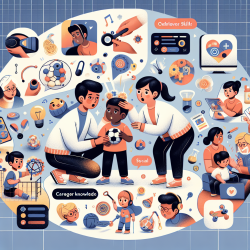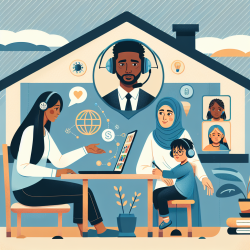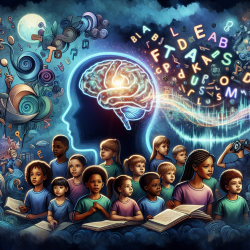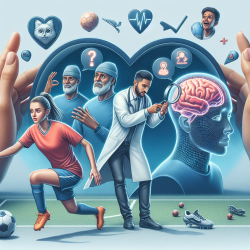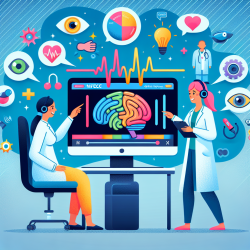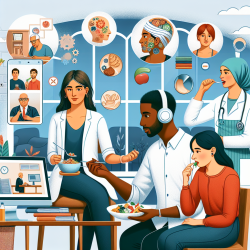Autism Spectrum Disorder (ASD) presents unique challenges that can significantly impact a child's social and motor skills, subsequently affecting their participation in daily activities. The research article, Exploring Caregiver Perspectives of Social and Motor Skills in Children With Autism Spectrum Disorder and the Impact on Participation, offers valuable insights that can help practitioners enhance their approaches to therapy. This blog will explore key findings from the study and provide actionable steps for practitioners to implement these insights effectively.
Key Findings from the Research
The study utilized semistructured interviews with caregivers of children aged 5-9 years with ASD. Three core themes emerged:
- Caregivers viewed participation differently than their children.
- Participation levels of children with ASD are context-specific.
- Challenges with social skills were perceived to present a greater obstacle to participation than motor skills.
Caregivers Viewed Participation Differently Than Their Children
Caregivers often have a broader and more societal view of participation compared to their children. While caregivers may emphasize the importance of group activities and social engagement, children with ASD may find satisfaction in more solitary or one-on-one activities. Understanding this discrepancy is crucial for practitioners.
Participation Levels Are Context-Specific
Children with ASD exhibit varying levels of participation depending on the environment. They tend to participate more at home, less at school, and least in community settings. Factors such as sensory overload, structure, and familiarity significantly influence their willingness to engage.
Social Skills as a Greater Obstacle
Caregivers reported that social skills deficits present more significant barriers to participation than motor skills. While motor skills are essential, social skills are crucial for meaningful engagement in group activities and peer interactions.
Actionable Steps for Practitioners
1. Individualized Participation Goals
Recognize that each child with ASD is unique. Develop individualized participation goals that consider the child's preferences and comfort levels. Encourage activities that the child finds enjoyable and gradually introduce more social elements.
2. Create a Structured and Predictable Environment
Structure and predictability are vital for children with ASD. Design therapy sessions and activities that follow a consistent routine. Use visual schedules and clear instructions to help the child understand what to expect.
3. Focus on Social Skills Development
Given that social skills are a significant barrier, prioritize interventions that enhance these skills. Role-playing, social stories, and peer-mediated interventions can be effective. Encourage parents to reinforce these skills at home.
4. Sensory-Friendly Approaches
Be mindful of sensory sensitivities. Create a sensory-friendly environment by minimizing loud noises, bright lights, and other potential sensory triggers. Offer sensory breaks and tools such as noise-canceling headphones or fidget toys.
5. Collaborate with Caregivers
Caregivers offer invaluable insights into their child's preferences and challenges. Maintain open communication with caregivers and involve them in setting goals and designing interventions. Their input can significantly enhance the effectiveness of therapy.
Encouraging Further Research
While this study provides essential insights, further research is needed to understand the complex interplay between social and motor skills in children with ASD. Practitioners are encouraged to stay informed about the latest research and consider contributing to the field through their observations and experiences.
To read the original research paper, please follow this link: Exploring Caregiver Perspectives of Social and Motor Skills in Children With Autism Spectrum Disorder and the Impact on Participation.
